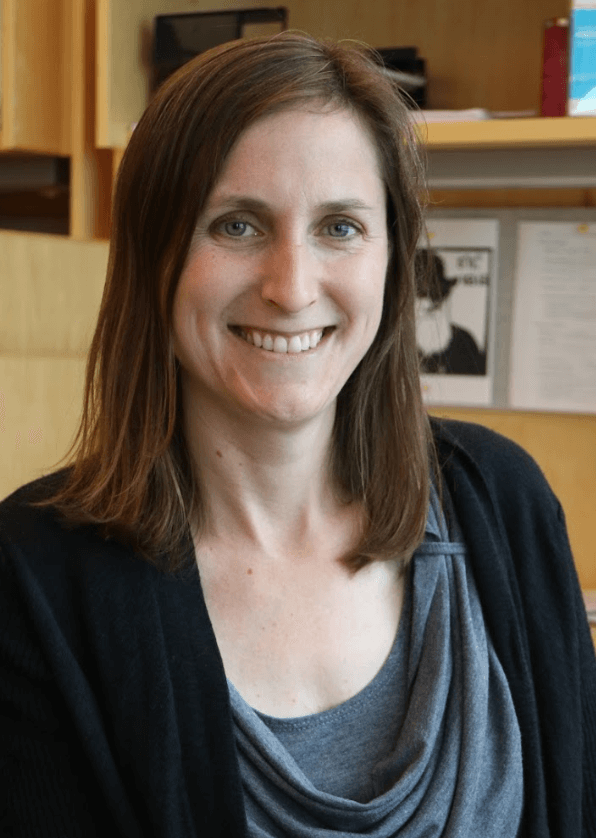
Interview with Dara Torgerson by Alexa Rocourt
Q: In a couple sentences, tell me about what you do in your work.
A: I study the genetics of complex disease in diverse human populations. I am focused on methods to identify individual genes, pathways and genetic variants that play a role in diseases such as bronchopulmonary dysplasia in preterm infants and asthma. I’m particularly interested in diseases that differ by racial ethnic group, and where individuals respond differently to available therapies.
Q: What’s your favorite part about being a scientist?
A: I like the problem solving. I enjoy coming up with interesting questions and then finding a way to answer those questions. I like interacting with students, other scientists and the community to generate new ideas and scientific approaches that no one individual could do on their own.
Q: What have you created or discovered or worked on that you are most proud of?
A: When I started studying the genetics of lung disease in preterm infants, my second daughter was born prematurely and I saw first-hand the need for further research in this area. We’re trying to figure out why some infants are more likely than others to develop bronchopulmonary dysplasia, and why some infants respond differently to treatments. Thus far, we’ve implicated differences in drug metabolism and the immune response, but we have a long ways to go.
Q: At the end of the day, why does your work matter?
A:I study genetics to better understand the mechanisms of disease from the angle of trying to identify new drug targets, biomarkers of disease, and the patients who will benefit from specific treatments. My work matters because we need to understand a disease to better manage it, and because it may increase our ability to customize treatments to an individual. Most of the research we do is population based, and we know in practice that many drugs work differently in different people. It would be helpful to know who is at higher risk of disease to better target therapeutic interventions, and who would benefit from a specific treatment, Equally important is to learn more about the basic biology and physiology of disease. If we understand the system better, we can figure out how to change the system. Genetics can be very helpful in achieving these goals, because it brings our observations down to the level of a protein and potentially how these proteins are interacting together.
Q: Outside of work, what do you do to relax?
A: I have two small children so I don’t have a whole lot of time to relax at this phase in my life, but I try to make time I like to read fiction - my mom belongs to a book club and when she visits she leaves me with an interesting collection of books to read that I might not have read otherwise. I also like gardening and getting into the dirt, and fortunately the kids are happy to help out with that. I also like being out in the forest and in the wilderness. I grew up in a small town in Canada with plenty of access to nature, so setting aside time to get outside helps keep me centered.
Q: What situation do you think you’d feel the most out-of-place in?
A: I have a severe, life-threatening food allergy So, putting me out of my comfort zone is putting me in a closed restaurant with a lot of people eating shellfish, because I don’t know whether or not I will develop a severe allergic reaction.
Q:In 100 years, what do you want to be remembered for?
A: I want to be remembered for the research trajectories of the students and scientists I train. Certainly I want my research to have impact and be memorable in itself, but in an academic institute we are also tasked with training researchers for the future. If I can have a positive impact on future scientists, my efforts become an exponential growth of scientific potential.I think in 100 years, the biggest impact a scientist can have resides in the cumulative scientific advances from the people you’ve have an influence on.